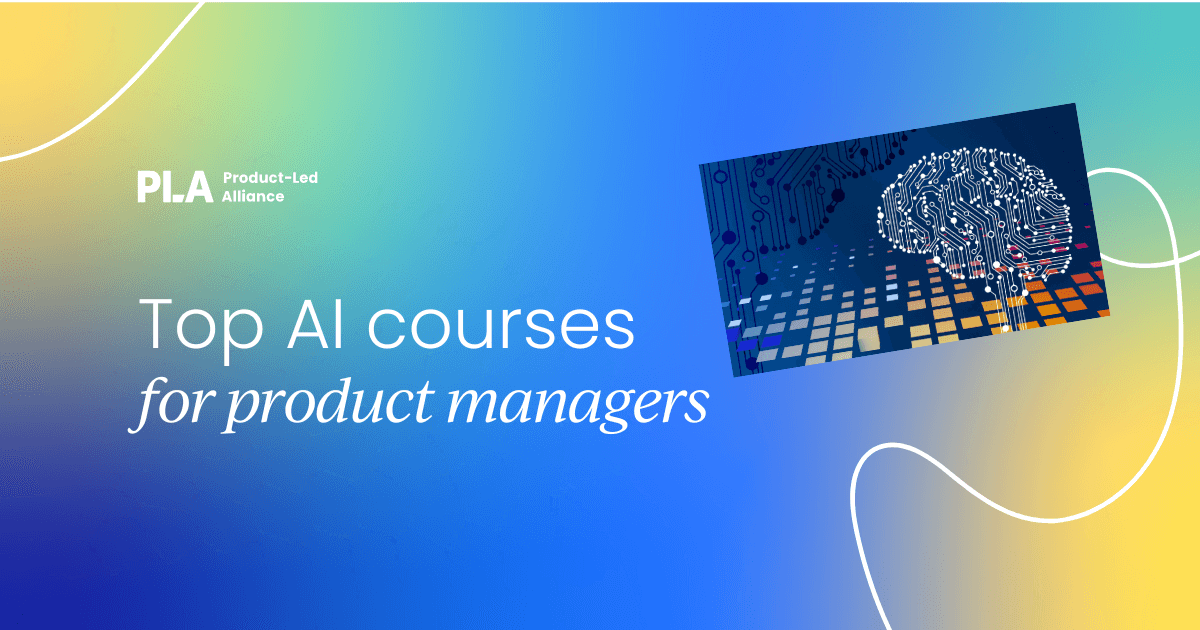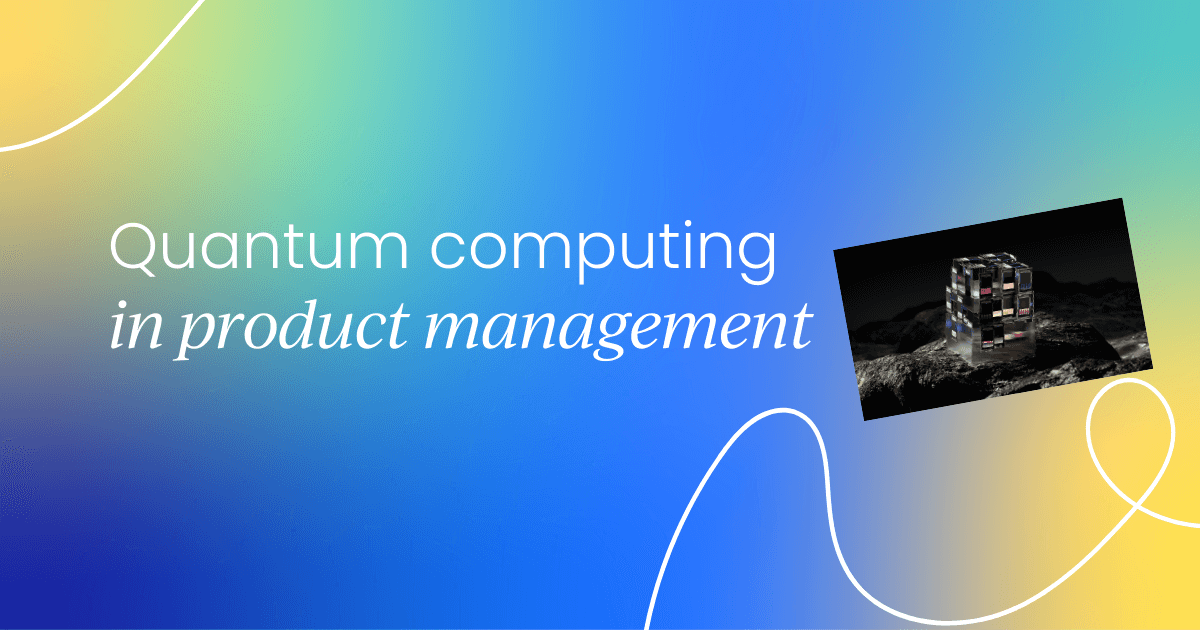When you hear the phrase “quantum computing,” it might sound like something out of a sci-fi movie. Complex, futuristic, and a bit overwhelming, right? But what if I told you that this next-generation technology is something that could revolutionize not just the world of science but also the way we manage products and businesses?
In this article, we’re diving deep into quantum computing, how it differs from classical computing, its use cases, and when we might start seeing it become mainstream. But don’t worry—we’re keeping things simple and conversational, so buckle up for an exciting ride!
What is quantum computing?
Let’s start with the basics: what is quantum computing? Simply put, it’s an advanced type of computing that leverages the principles of quantum mechanics to perform calculations far faster than classical computers could ever dream of.
But what’s the difference? Classical computers, like the one you’re using now, work with bits. These bits are binary, meaning they can be either a 0 or a 1 at any given time. Quantum computers, on the other hand, use qubits, which can exist in a superposition of states. What does that mean? Qubits can be both 0 and 1 simultaneously. This opens up a whole new world of possibilities when it comes to processing data and solving problems.
It’s like a classical computer is a strict yes-or-no machine, while a quantum computer can entertain the possibility of “maybe” or “both.” This unique ability makes quantum computers exponentially more powerful for certain tasks, but more on that later.
Quantum computing vs. classical computing: A side-by-side look
So, what’s the real difference when we talk about quantum computing vs classical computing? Why should product managers care about it?
Data handling: Classical computers process data sequentially, bit by bit. Quantum computers, with their qubits, can process massive amounts of data simultaneously because of their ability to exist in multiple states at once. It’s like reading through 10 books in the time it takes a classical computer to read one.
Problem-solving: Classical computers excel at tasks that have clear, binary answers. But when it comes to complex, multi-variable problems—such as optimizing a supply chain, predicting market trends, or even managing product lifecycles—quantum computing can offer solutions exponentially faster.
Encryption: This is where quantum computing gets interesting for cybersecurity. Classical encryption systems may eventually be cracked by quantum computers, leading to a need for stronger encryption methods. In product management, where data protection is critical, the development of quantum-safe cryptography could become crucial in the near future.
Simulation and modeling: Imagine being able to simulate every possible iteration of a product feature, user behavior, or market condition in seconds rather than weeks. Quantum computers can handle such simulations effortlessly, making them a powerful tool for product managers trying to make data-driven decisions.
How does quantum computing work?
Now that we’ve established the quantum computing vs classical computing differences, let’s break down how quantum computing actually works—without getting too technical.
Quantum computing uses quantum mechanic principles, a branch of physics that look at particles on a subatomic level. The two primary concepts that power quantum computing are superposition and entanglement.
- Superposition: This allows the exploration of multiple possibilities at the same time. As mentioned earlier, while classical bits can be either 0 or 1, qubits can be both 0 and 1 at the same time. It’s like having a cat that’s both alive and dead (thanks, Schrödinger!) until you observe it.
- Entanglement: In quantum computing, entanglement allows qubits to become interconnected in such a way that the state of one qubit can affect the state of another, even if they’re far apart. This makes processing even faster because changes in one qubit can instantaneously influence others, no matter the distance between them.
Together, these concepts allow quantum computers to solve certain problems much faster than classical computers ever could.

Quantum computing use cases: Real-world applications for PMs
Alright, enough with the theory—let’s look at some use cases and how they can actually benefit product management.
- Optimization problems: Imagine trying to find the most efficient delivery route for a fleet of trucks or the optimal layout of products in a warehouse. Classical computers struggle with these types of problems because there are too many variables to consider. Quantum computing can tackle these optimization problems with ease, offering solutions that save both time and money.
- Risk analysis: In industries like finance or healthcare, analyzing risk is a huge part of product management. Quantum computing can process enormous datasets faster than classical computers, offering real-time insights that can help product managers make more informed decisions.
- Artificial Intelligence and Machine Learning: Quantum computing could revolutionize AI and machine learning by speeding up the time it takes to train models and process data. Product managers working with AI-driven products or features will be able to leverage these advances to deliver better customer experiences faster.
- Supply chain management: Quantum computers can help optimize supply chain logistics by simulating different scenarios and finding the most efficient strategies. This could lead to smoother operations, reduced costs, and more satisfied customers—a win for any product manager.
- Drug discovery and materials science: In industries like pharmaceuticals and manufacturing, product managers could use quantum computing to simulate the behavior of molecules and materials, speeding up the discovery of new drugs or innovative materials.
- Cybersecurity: As we mentioned earlier, quantum computing has the potential to break classical encryption methods, making current data protection measures obsolete. On the flip side, quantum-safe encryption could become a major selling point for companies that prioritize security in their products.
Quantum computing for beginners: What product managers need to know
If you’re new to the world of quantum computing, it can seem like a daunting field to break into. However, as product managers, we don’t need to become quantum physicists—we just need to understand how this technology could impact our products and strategies. Here’s a quick primer for beginners.
- It's still in its early days: Quantum computing isn’t yet mainstream. While it holds enormous promise, the technology is still being developed. But it’s something product managers should keep an eye on because it has the potential to transform industries in the near future.
- It won’t replace classical computers: Quantum computers won’t be replacing your laptop anytime soon. They excel in specific tasks that classical computers struggle with, such as optimization, simulation, and encryption. For most day-to-day tasks, classical computers are still the way to go.
- Start learning now: While quantum computing might seem far off, product managers can get ahead of the curve by starting to learn the basics. Understanding the potential impact of quantum computing on your industry could give you a competitive edge when the technology becomes more widely available.
When will quantum computing be available?
This brings us to the big question: When will people have access to this technology? The truth is, we’re not quite there yet.
Quantum computing is still very much being experimented with. Companies like IBM, Google, and Microsoft are working on quantum computers, and while they’ve made impressive strides, we’re probably still a few years away from seeing quantum computing become widely available.
That said, there’s already a lot of buzz about Quantum as a Service (QaaS) models, where companies could rent quantum computing power via the cloud, similar to how we use classical cloud computing today. This could open the door for product managers to start experimenting with quantum algorithms without having to invest in expensive hardware.
How should product managers prepare for the quantum revolution?
Quantum computing may still be in its infancy, but the savvy product manager will start preparing for its arrival now. Here are a few ways to get ahead of the curve:
- Stay informed: Quantum computing is quickly evolving. Keep up with the latest developments so you can spot opportunities for your products and your business.
- Think big: Quantum computing will make it possible to tackle problems that were previously unsolvable. Start thinking now about how you could leverage this technology to optimize your products, improve customer experiences, or streamline operations.
- Collaborate with experts: You don’t need to be a quantum physicist to benefit from quantum computing, but you may need to collaborate with experts in the field. Building partnerships with quantum computing researchers or companies could give you an early advantage.
- Experiment with quantum algorithms: If you’re feeling adventurous, start experimenting with quantum algorithms. There are already platforms that offer limited quantum computing capabilities via the cloud, and this is only going to grow as the technology develops.
Conslusion
Quantum computing might sound like something out of a sci-fi movie, but it’s very much a real technology with the potential to revolutionize industries, including product management. While we’re still in the early stages of its development, the day when quantum computers become a part of our daily lives isn’t far off.
As product managers, staying informed and prepared for the quantum revolution could set you apart in a competitive market. Whether it’s optimizing supply chains, enhancing AI, or improving cybersecurity, quantum computing holds exciting possibilities that will reshape the future of product management. So, are you ready for the quantum leap?
Are you ready to dive headfirst into the exciting realm where AI and product management collide?
Introducing our brand-new AI Product Manager's eBook – your ultimate guide to navigating the ever-evolving landscape of product management in the age of artificial intelligence.




 Follow us on LinkedIn
Follow us on LinkedIn





